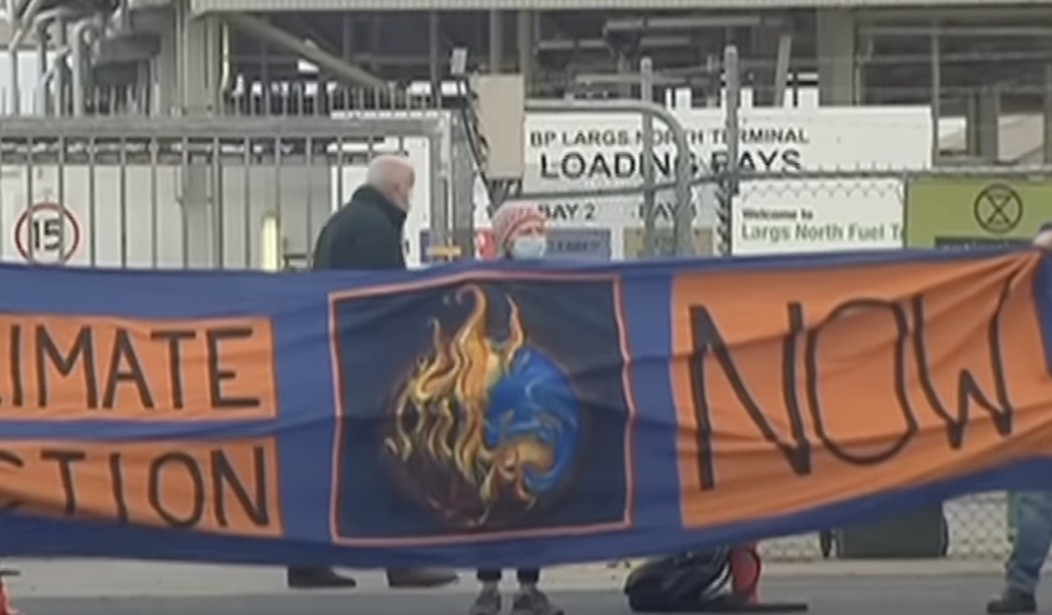I have previously made the argument that environmentalism is a fundamentally conservative ideology.
The proper role of the state, if one exists at all, is to make a sincere attempt to remedy the multitude of ongoing, very real environmental catastrophes — like, for instance, the microplastics pandemic caused in part by the abundance of (mostly useless) COVID-19 surgical masks.
The absolute cynicism of modern Western politics muddies the water about environmentalism and its ideological merits. The discourse surrounding environmentalism, as a result, becomes a stale and toxic byproduct of the Culture War.
Instead of seeing real environmental issues addressed, we are treated by the corporate state to nonstop lectures about “carbon emissions” as a pretext to shut down industrialized Western economies, not out of any sincere environmental concern.
Sad adult children, groomed as they were in public school, lap it up. They become willing servants of an agenda they don’t understand, with aims other than the stated one of environmental conservation, camouflaged in the liberal and loving language of the corporate state.
Yet there are those — branding themselves “eco-fascists,” who marry fascism with environmentalism — who take their mandate to conserve the natural world from the ravages of humanity’s industrial machinations in a more militant and sincere, if misguided, direction.
It’s difficult to pin down an objective definition in the corporate media or academic literature of what exactly eco-fascism is and isn’t. A fair hearing on what its proponents advocate without the predictable smears of its adherents as “racist” “conspiracy theorists,” etc. is impossible in the mainstream media, where important conversations are supposed to take place in a functional representative republic.
For instance, consider GQ‘s definition, which without nuance conflates eco-fascism with White Supremacy™:
Eco-fascism is not the fringe hippie movement usually associated with ecoterrorism. It’s a belief that the only way to deal with climate change is through eugenics and the brutal suppression of migrants. The movement’s founding father was Madison Grant, who started the first organizations dedicated to protecting California redwoods and American buffalo. He was also a staunch supporter of race science who, as president of the Bronx Zoo, put Ota Benga, a member of the Mbuti tribe kidnapped from Congo, on display in a cage with apes in 1906.
The corporate media is also intent on associating mass shooters with the ideology.
Via the University of Connecticut:
The term itself is still very much up for debate but gathering currency largely due to high-profile individuals who have explicitly identified themselves as ecofascist. An example includes the man who murdered 51 People in a Christchurch, New Zealand, mosque in 2019.
Of course, some racist mass shooters might nominally be eco-fascists, but not all eco-fascists need necessarily be racist mass shooters.
Arguably the most infamous eco-fascist in modern memory is Ted Kaczynski, aka “The Unabomber,” whose wide-ranging treatise on the ills of modern society, Industrial Society and Its Future, focused heavily on what he perceived as the scourge of technological progress on the natural world:
Through our bombings we hope to… propagate anti-industrial ideas and give encouragement to those who hate the industrial system. . . . The people who are pushing all this growth and progress garbage deserve to be severely punished.
The term itself, as evidenced here, is tainted by association. “Eco-fascism,” for that reason as well as its fundamental opposition to industrialization and technological advancement, will forever likely remain on the margins of politics, unembraced by any mainstream movement. Nonetheless, might it inject some new, much-needed perspective on the merits of ecological conservation into the zeitgeist?










Join the conversation as a VIP Member